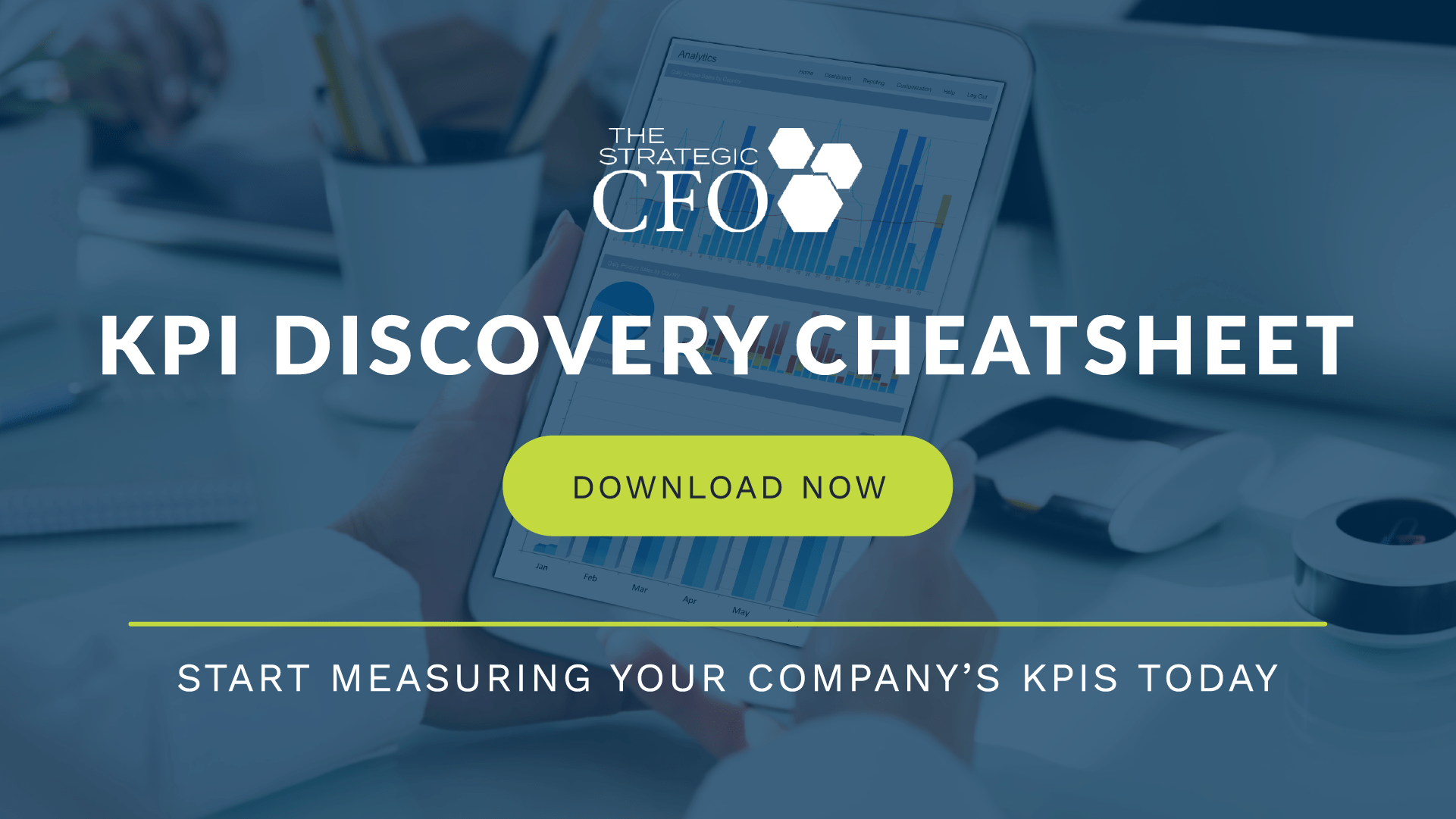Most people (especially those outside the finance side of the business) see the financial function as a cost center. Although an accounting department does not generate any revenue, it has the potential to dramatically improve profitability. Think about this: you should be able to convert 1-2% of sales into profits if the department was more productive. The productivity of an accounting department is directly linked to the improvement of profits and cash flow – the bread and butter of financial leaders.
How Productive Is Your Accounting Department?
Before you attempt to improve the productivity of an accounting department, assess how productive or unproductive it is currently. First, log what is working and what is not working. By going through this process, you will allow yourself or the financial leader of your company to fully evaluate what is going on. There are a couple areas that you can start considering when asking the question: how productive is your accounting department?
If you find that your accounting department is productive, brainstorm ways to make it more productive. The great thing is that there is always room for improvement.
Track your accounting department’s productivity by using KPIs. For help, download the KPI Discovery Cheatsheet!
 Tips to Improve Productivity of Accounting Department
Tips to Improve Productivity of Accounting Department
While there may be a million little things that you can do to push the needle a little, we have found that there are a few focus areas that allow you to take the biggest strides ahead. When improving the productivity of an accounting department, start by using best practices, training and developing your team, automating as much as possible, communicating effectively, tracking progress, and outsourcing. Finally, walk through your accounting department to ensure maximum profitability.
Use Best Practices
The best way to accomplish this first tip is to continually read up on, research, discuss, learn from thought leaders, and attend events to catalog the best practices used by others to attain a productive accounting department. In addition, if you keep ahead on implementing the best practices, you should be able to accomplish company goals quicker. According to GAAP, some best practices include regularity, consistency, continuity, and recording sales when they are certain.
Training & Development
Unfortunately, some employees are simply not going to do the dirty work of reading up on the best practices. They are leaving that up to you – the financial leader. Those employees are going to continue to do exactly what they have done in the past; and therefore, reduce the chances of being more productive. So, it is up to the financial leader to provide training and development for the team. If the team hears and learns the same training and development sessions, then there is a huge opportunity to create a more synergized accounting process.
In his book The 7 Habits of Highly Effective People, Steven Covey says that synergy “is the habit of creative cooperation. It is teamwork, open-mindedness, and the adventure of finding new solutions to old problems. But it doesn’t just happen on its own. It’s a process, and through that process, people bring all their personal experience and expertise to the table. Together, they can produce far better results than they could individually. Synergy lets us discover jointly things we are much less likely to discover by ourselves.” The more your team is on the same page, the more productive your accounting department.
Automate
One of the great things about technology is that you can automate almost everything. While that could be bad news for those of you whose jobs could be automated, it is great for the productivity of an accounting department. Rather than laying off those employees, strategize how you can transition those people into more value-adding roles.
Communicate with Team
There’s a joke that you can tell extroverted accountants from introverted accountants by whose shoes they look at – their own or the other person’s. All jokes aside, it is critical that the financial leader get themselves and their team out of their office to communicate. During the hour or so when you take lunch or get coffee, ask one of your team members to join you. In addition to getting to know them better, see if they have any ideas about how to make the department more productive.
Identify Skills of Team
Part of communicating with your team includes identifying the skills of your team. Understand what talents they may have that was not on their resume. Assign projects to them in areas that they excel. Ask questions like: What’s the first thing that you like to do at the beginning of the day? Or if there is something that you could do all day, every day, what would that task be? When you identify the skills, talents, likes, and dislikes, you will be able to further develop your team.
Have KPIs
Identify those key performance indicators (KPIs) that indicate the productivity of an accounting department. Once you have identified them, use and track them. If you find your department sliding backwards, reassess and start the process over again.
If you are struggling to identify and track the KPIs that indicate the productivity of your accounting department, click here to access your free KPI Discovery Cheatsheet!
Outsource
If a specific job or task is not a core function of the business, explore whether it can be outsourced. For example in our retained search business, we have discovered that many companies are outsourcing their accounting departments to countries like the Philippines and Germany because it is more cost-effective for their organization. While that decision may be outside the norm, it is an opportunity to step up and be a financial leader. Outsource tasks and roles that can be accomplished at the same quality for a lower cost.
 Walk-Through Process
Walk-Through Process
Finally, generate a list of topics to run through when evaluating the productivity of an accounting department. The Journal of Accountancy developed a questionnaire as part of a walk-through process checklist that can be accessed online (we have also included it below). When you ask yourself these questions, you’ll be able to better gauge the productivity of your accounting department and exactly where you need to focus.
Time
- How much time are you spending on any given task?
- Is it labor intensive?
- How many people participate in the process?
- Does it take excessive time to complete?
- Is there a duplication of effort?
- Are too many handoffs occurring?
- Are roles and responsibilities clearly defined?
- Is anyone performing similar tasks?
- Are roles and responsibilities appropriate?
- What is slowing down the process?
- Do you require needless reviews or approvals?
- What are the busiest times of the day, week, month and/or quarter?
If there is a task or job that is time intensive, judge if that job could be automated, outsourced, or done quicker. The goal is to reduce the cost associated with that task or job. Unfortunately, you are going to find that there are jobs that simply cannot be trimmed as they are essential to the business itself. That’s okay! But try to find and reduce the costs associated for as many tasks as possible.
Necessity
- Is the step or process necessary to the company’s success?
- Can you eliminate it without causing any damage?
- Do you have more tasks to do because of a single task?
- Is duplication of information necessary?
Automation
- Can you automate a task?
- Are you keying in the same data into multiple places? (For example, the accounting system, an Access database, spreadsheets, etc.)
- Does a backlog exist?
- How often are your deadlines missed?
- Where is there a breakdown of a streamlined process?
- Is there a person or a job that stops the production of financials?
Value Adding
- Does a task add value?
- How accurate is the data?
- How much value can come from automating/outsourcing/etc.?
Conclusion
Streamline your accounting department by asking questions, automating, outsourcing, and find more profits and cash flow. Don’t continue to just be a cost center… Transform your department into a value-adding entity within the company! For help and tips to track your transformation, you need something to measure your performance. For help, download our KPI Discovery Cheatsheet and start measuring your accounting department KPIs today.












